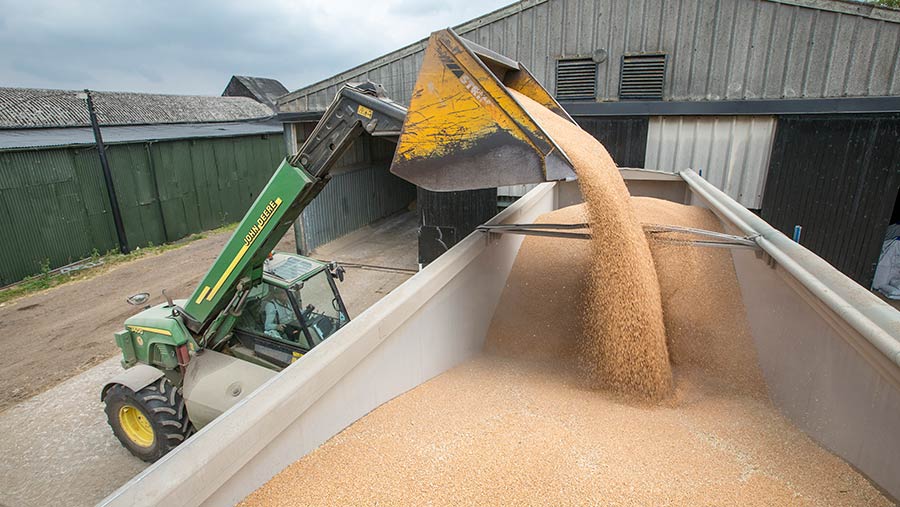Future of digital grain passports ‘up in the air’
 © GNP
© GNP Disagreements between merchants, hauliers and industry groups are causing major disruption to the introduction of digital grain passports – the “paperwork” used to track individual consignments of combinable crops along the supply chain.
The digital passports are intended to replace paper documents and an initial date of June 2023 was set for the scheme to start being implemented; however, its future now appears uncertain.
Farmers Weekly spoke to a range of individuals involved in the development of a digital alternative, to establish what the next steps are and what is limiting progression.
See also: Grain prices fall to less than half of 2022 peak
One source involved in the project said a “last-ditch attempt” was being made to get it working, adding that there were still a fair few dissenting voices and people were jumping the gun by suggesting there had been progress.
“The project has been going on for about 10 years and it is probably no further forward than it was eight years ago,” the source said.
“We are back at the beginning and there are some fundamentals still being talked through.”
Another industry representative said there were some “pretty fundamental conversations” taking place and a few areas of conflict remained.
Outstanding issues include mobile signal coverage, use of technology, responsibility for signing off loads of grain, and access to data.
Steering group
The AHDB is steering the project aided by a leadership group made up of representatives from a range of agricultural trade bodies and stakeholders.
The group includes organisations such as the Agricultural Industries Confederation, the Maltsters Association, UK Flour Millers and the NFU.
According to the AHDB the industry has yet to commit to switching from paper to digital passports and representatives are currently working on fleshing out the business case.
Support for the project is varied, with reports of millers generally being keener on progression, while some hauliers and industry bodies are less in favour.
In November last year, NFU Scotland publicly pulled its support for digital grain passports, citing concerns about cost and complexity. However, it remains involved in the project in order to represent its members.
Another closely involved party said the scheme “keeps growing arms and legs” and is becoming overcomplicated and unworkable.
They added that, while things needed to move with the times, “it’s hard to see how this will be able to be cost effective and not add a further burden to farmers with additional box ticking”.
Industry taskforce
Two groups have been formed to look into issues and try to reach a resolution on sticking points.
The first is a development group, designed to ensure the scheme is fit for purpose, look at costings, and outline who is responsible for different areas.
A second group has been established with a focus on data governance and app functionality.
